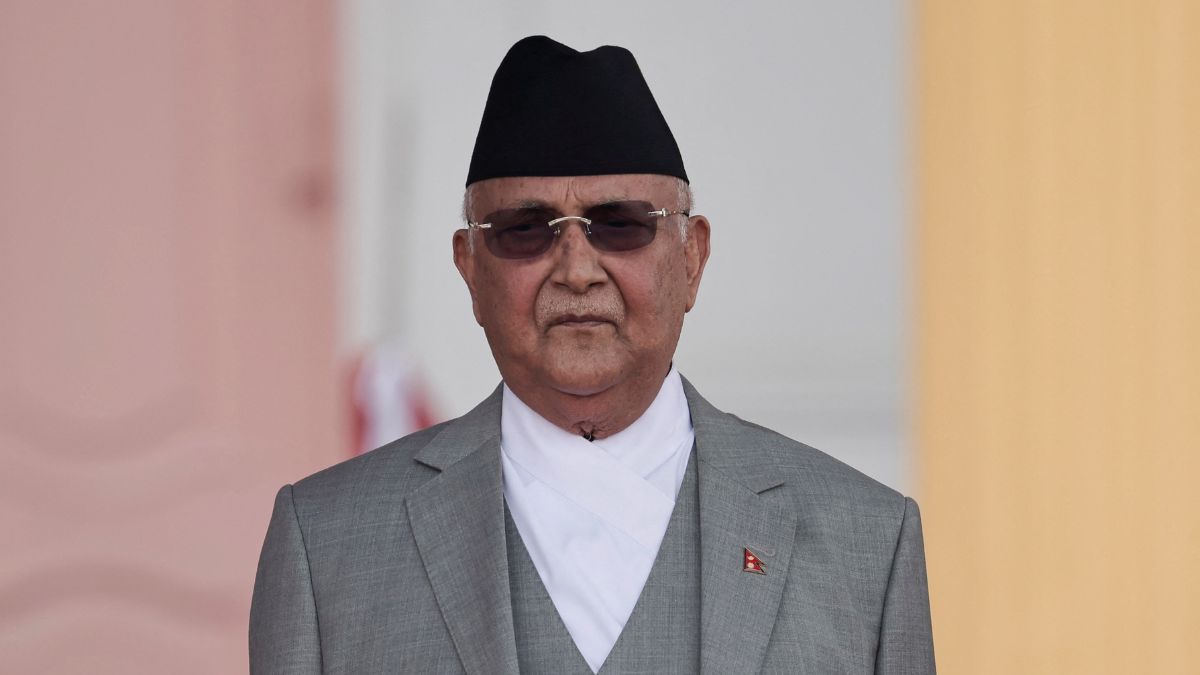Last Updated:
Nepal’s army chief, high-ranking security officials and civil servants also offered their condolences to families who lost their loved ones in police action during the protests

People displaying Nepal’s national flag burn tyres during a demonstration to condemn police action on protesters in Kathmandu on September 9. (Image: Prabin RANABHAT/AFP)
Nepal’s army and bureaucracy urged citizens to stay calm and called for student protesters to exercise restraint as Prime Minister KP Sharma Oli resigned on Tuesday in the face of a massive anti-government agitation.
In a statement, the army chief, high-ranking security officials and civil servants offered their condolences to bereaved families. At least 19 people were killed in police action during the protests on Monday (September 8), prompting Oli’s resignation.
Recommended Stories
Follow Nepal Gen Z Protest LIVE Updates Here
“Due to the protests taking place in Kathmandu and in different parts of the country since yesterday (Monday, September 8), there has been a huge loss of lives and property. We express deep condolences and heartfelt sympathy to the bereaved families of those who lost their lives in this incident,” read the statement.
It urged citizens to remain calm so that there is no more loss of life and property while also making an appeal to concerned political parties and stakeholders to seek a “peaceful and sustainable” resolution at the earliest.
“With the honorable Prime Minister’s resignation now accepted, we sincerely request all citizens to remain calm so that further loss of lives and property can be avoided,” it said. “Through this appeal, we also heartily urge all political parties and concerned stakeholders to seek a peaceful and sustainable resolution to the current political situation at the earliest possible.”
The statement was signed by Ek Narayan Aryal, chief secretary, Government of Nepal; Ashok Raj Sigdel, Chief of Army Staff, Nepal Army; Gokarna Mani Duwadi, Home Secretary, Government of Nepal; Raju Aryal, Inspector General, Armed Police Force, Nepal; Chandra Kubera Khapung, Inspector General, Nepal Police; and Hutaraj Thapa, Chief Investigation Director, National Investigation Department.
‘ENTIRELY A GEN Z MOVEMENT’
Kathmandu Metropolitan City mayor Balendra Shah ‘Balen’, meanwhile, called on “Gen Z protesters” to exercise restraint following Oli’s resignation.
Acknowledging that the ongoing demonstrations are “entirely a Gen Z movement”, Shah stressed that the government resignations have been secured.
“Dear Gen Z, your demand for the resignation of the government has been met. Now it is time to remain restrained,” Shah wrote on his social media.
Shah warned against further damage to public and private property. “The loss of the country’s wealth is, in reality, a loss to our own property. It is now essential that we all act with restraint,” he said.
He highlighted the responsibility of the younger generation in shaping Nepal’s future leadership and urged them to be ready for constructive engagement. He mentioned the possibility of talks with the army chief.
“But remember – such dialogue should take place only after the dissolution of Parliament,” he added.
Shah’s message comes as Nepal reels under massive protests with the demonstrators attacking private residences of several top politicians, including President Ramchandra Paudel, and vandalising the parliament.
WHY ARE THE PROTESTS HAPPENING?
The protests reflected the growing public anger with the political class over a range of issues including a ban on social media and alleged corruption. Demonstrators gathered at the heart of Kathmandu and elsewhere despite curfews and heavy deployment of security forces.
Officials said Oli stepped down shortly after hundreds of agitators entered his office shouting slogans demanding his resignation for the 19 deaths during the protests.
Though the Nepal government revoked its ban on social media websites last night following the protests, the agitators continued their demonstration against corruption while demanding accountability for the 19 deaths. Hours before the prime minister’s resignation, the protesters set fire to the Nepalese leader’s private house in Balkot, and attacked residences of former PM Pushpa Kamal Dahal, communication minister Prithvi Subba Gurung, former home minister Ramesh Lekhak among others. The protesters also attacked the private residence of the President.
Demonstrations were reported from Kalanki, Kalimati, Tahachal, and Baneshwor in Kathmandu, as well as Chyasal, Chapagau, and Thecho areas of Lalitpur district. Protesters, mostly students, chanted slogans such as ‘Don’t kill students’, defying the restrictions on public gatherings.
The Gen Z group, which has been campaigning against corruption for some time, has used social media platforms like Reddit and Instagram to expose what they called the “extravagant lifestyles of the children of ministers and other influential figures”. They have posted videos and images, questioning the sources of wealth that fund such opulence, purportedly derived from corrupt practices.
They said the ban of social media sites was an attempt to suppress freedom of speech. The Nepalese government had ordered the ban of 26 social media sites, including Facebook and ‘X’, over their failure to register with the government.
(With agency inputs)
About the Author

Group Editor, Investigations & Security Affairs, Network18
Group Editor, Investigations & Security Affairs, Network18
Kathmandu, Nepal
September 09, 2025, 17:04 IST
Loading comments…
Read More




)